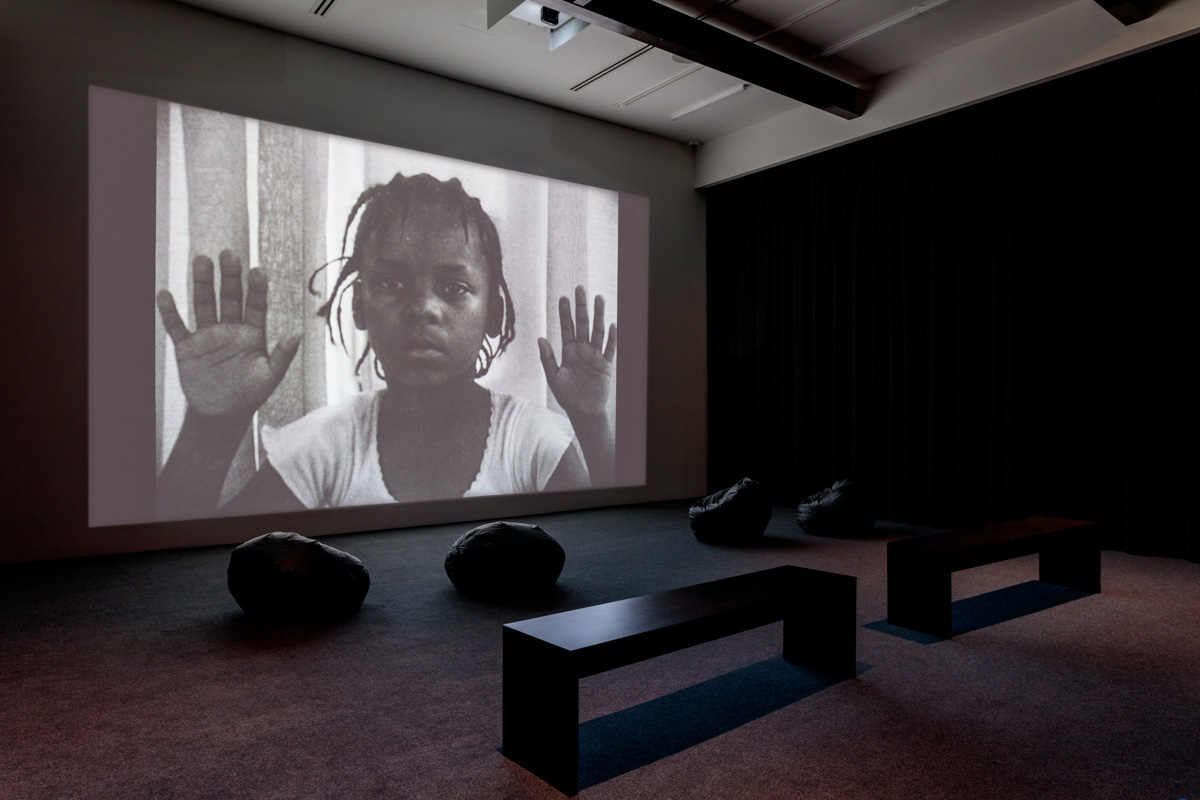Alumni works featured in exhibition exploring LA film history’s black narratives

The 1979 L.A. Rebellion film “Your Children Come Back to You” is part of The Broad and Art + Practice’s “Time is Running Out of Time: Experimental Film and Video from the L.A. Rebellion and Today.” It was directed by alumna Alile Sharon Larkin, who is part of the wave of L.A. Rebellion films.
(Courtesy of Joshua White)
"Time is Running Out of Time"
Through September 14
Art + Practice
Free
By Cameron Vernali
March 13, 2019 10:49 p.m.
A critic in the ’80s told L.A. Rebellion filmmaker Alile Sharon Larkin that her short film was terrible.
Years later, the same critic watched the short at a screening of the L.A. Rebellion archives and wrote a positive review.
Larkin is one of many alumni whose work is shown at “Time is Running Out of Time: Experimental Film and Video from the L.A. Rebellion and Today,” a collaborative exhibit between Art + Practice and The Broad that is running through Sept. 14. The exhibit is in conjunction with The Broad’s exhibition “Soul of a Nation: Art in the Age of Black Power 1963-1983.” Jheanelle Brown, a co-curator of the exhibit, said it showcases themes of politicization and community prevalent in L.A. Rebellion films.
“(‘Time is Running Out of Time’) basically localizes to LA and historicizes the conversation to LA (as well as) making sure that film production is added to that conversation because everyone is influenced by different mediums,” Brown said. “Why not bring out all the contributions that folks have been making in LA to this larger (black art) conversation?”
The L.A. Rebellion refers to projects by African and African-American filmmakers from UCLA in the 20th century, said Allyson Nadia Field, one of the co-curators of the L.A. Rebellion Preservation Project at the UCLA Film & Television Archive. The first wave of L.A. Rebellion filmmakers originally entered UCLA’s School of Theater, Film and Television after the 1965 Watts Riots and prompted UCLA to found an EthnoCommunications initiative, which brought more people of color to the school, she said.
Due to the political events at the time and the increase in black identity movements, she said there was a sense of urgency in how they utilized film to reframe black identity, harness political potential and engage with the community, she said.
“(L.A. Rebellion filmmakers) understood they worked together for a common purpose, rethinking of how to work against the trends of classical Hollywood cinema that had been hostile to the representation of people of color and thinking of using film form more creatively to shape a new image of black cinema,” Field said.
[RELATED: Q&A: Film alumnus discusses achievement award, role in L.A. Rebellion]
Larkin herself entered the school of Theater, Film and Television in 1975 for a MFA in motion picture production. There, she said she found many other African-American filmmakers collaborating on films about race, class and gender. Some of the films’ experimental approaches led to them being screened at prominent festivals like Festival de Cannes – many while the filmmakers were still in school, Larkin said.
While the L.A. Rebellion films were critically applauded, Brown said the Broad exhibit originally had no film pieces and did not specifically focus on LA artists. She said she was interested in a collaborative exhibit with Art + Practice in order to bring films and LA artists into the conversation of black art during the ’60s to ’80s, she said.
“There is this collaboration between filmmakers and video artists and visual artists, (which is) something that can only be teased out in LA because it was only happening in LA at that time,” Brown said. “It feels like a unique intervention that we are able to make.”
[RELATED: ‘BlacKkKlansman’ recounts story of racism in 1970s, remains relevant today]
Brown said the exhibit considers three main themes within the movement: consciousness and politicization, community and family, and gender and womanhood. Many films in the movement explore the sacrifices of black mothers, chosen family and criminalization of black girls. Other filmmakers explored gender, either through the subject or by women physically being behind the camera, she said.
Larkin’s half-hour 16mm black-and-white film “Your Children Come Back to You” is included in the exhibit. While it was a short narrative, Larkin said the piece was still relatively experimental, since it was made by a young black woman in the 1970s. “Your Children Come Back to You” explores class inequality through the lens of a small child who is torn between her conservative Western aunt and her parent’s Pan-Africanist values, Larkin said.
By engaging with localized and intergenerational African-American film, “Time is Running Out of Time” shows what African-American artists can add to the larger conversation surrounding black identity, Brown said.
“Whether it’s independent, experimental avant-garde or commercial, (African-American films) can all be forms that recognize that there’s no monolith blackness,” Field said. “There’s many different ways of expressing black history, black culture, black aesthetics.”


